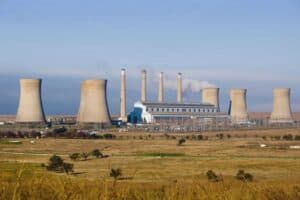Queen Elizabeth II was the symbol of stability in the seven decades that she ruled – the kind of stability that Eskom is denying the people of South Africa.

There has been so much commentary on the death of British monarch Queen Elizabeth II. Some commentary heartfelt and of comfort to the family but, also, some of the commentary quite cold and downright hurtful.
Some of the worst has even come from right within the queen’s UK territory, with Irish sports fans jovially singing “Lizzy’s in a box”.
The most sober observation though has been that, good or bad, she was the symbol of stability in the seven decades that she ruled. And it is stability that people need to thrive. Stability allows people to plan with reasonable certainty. It is this kind of stability that Eskom is denying the people of SA.
The power utility’s “power update” on Sunday morning was the clearest indication that even the people in charge do not know what the future holds. This must not be confused with Eskom management not working hard enough or not knowing what they’re doing. Far from it. It just appears they have no solid plan in place and the major shareholder, government, is not doing much to help its planning.
The most telling part of the briefing by the power utility was when the CEO André de Ruyter was asked why the utility is not putting SA on permanent stage 2 load shedding so that it can give itself more room for planned maintenance.
ALSO READ: WATCH: ‘Eskom, our laptops are like fridges’ – student’s plea goes viral
He answered: “We have debated it extensively internally. In a certain way, the planned maintenance we carry out contributes to load shedding because it is capacity that we plan to take off the grid.”
The power utility decided that increasing the time that they need for planned maintenance would not give them significant headroom. That is calamitous. Eskom decided against giving the country stability, predictability.
There can only be one reason for that and it is that Eskom does not want to say the exact stage that would give them enough headroom because that stage is worse than the suggested stage 2, probably stage 4 or higher.
In simple terms, the country is asking for stability to the power grid by saying to Eskom: “We have accepted the permanence of power blackouts, please take as much time as you need to fix your problems, we only ask that you tell us how much time and for how long you will be doing this.”
And Eskom’s response is a firm “No!”. Why? Because they are afraid of egg on their faces, should things get worse. That’s not only cowardly, but it is also destructive for the economy.
The power blackouts have long gone past the stage of domestic discomforts: citizens have accepted the cost of not having power over extended periods; the cost of replacing blown household equipment due to power surges.
They have accepted the cost of throwing away rotting foods and sleeping in the dark in crime-ridden areas. All they are asking from Eskom is predictability so they can plan their businesses around the blackouts and, for those with business, to make permanent plans to cut costs, based on a known plan.
Eskom spokesperson Sikonathi Mantshantsha loves repeating “creating generating capacity is a government function”.
Perfectly acceptable and understandable, government owns the purse. But, equally, Eskom needs to understand and accept that creating stability and predictability around available power supply is not a government function, it is a De Ruyter and company function.






